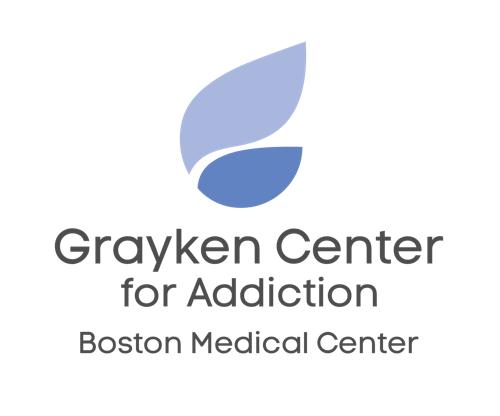Core Principles
We at the Grayken Center of Addiction believe in:
- Equitable access to evidence-based treatment
- Treatment, not incarceration
- Harm reduction and how it can help everyone
- Supporting families to cope with substance use disorders
- Empowering people and families with lived experiences
How You Can Get Involved
Policymakers & Legislative Staff Members
If you are a policymaker or government staff member and would like to consult with Grayken's addiction experts, email Boston Medical Center's Government Advocacy team members David Opp (david.opp@bmc.org) and Andrea Pessolano (andrea.pessolano@bmc.org).
BMC Faculty & Staff Members
If you work at Boston Medical Center and would like to join Grayken's policy efforts, email the Grayken Center for Addiction (grayken.center@bmc.org), and include Government Advocacy team members David Opp (david.opp@bmc.org) and Andrea Pessolano (andrea.pessolano@bmc.org).
Patients & Community Members
If you are a patient or local community member and would like to get involved in advocacy, email the Grayken Center for Addiction (grayken.center@bmc.org).
2025-2026 Policy and Advocacy Priorities
The issues below - including increasing access to evidence-based treatments and empowering people with substance use disorder and their loved ones - are vital to achieving our mission. We are sharing specific ways that community members, BMC staff, patients, policymakers, and other advocates can work to effect change in these areas.
Harm Reduction is for Everyone
- Protect and maintain access to harm reduction services
- Allow cities and towns to establish overdose prevention centers, which increase access to harm reduction services and link people to treatment
Overdose prevention centers are evidence-based harm reduction facilities where people who use drugs can safely consume pre-obtained substances under the supervision of trained healthcare workers, providing access to harm reduction services, linking people to treatment, and saving lives by reversing overdoses. Check out the Massachusetts for Overdose Prevention Centers (MA4OPC) campaign to get involved.
Equitable Access to Evidence-based Treatment
- Expand methadone access to non-opioid treatment program (OTP) settings
- Include information on methadone in the prescription drug monitoring program or expand access to the state's OTP dosing registry
- Expand access to treatment for marginalized communities
Methadone is a highly effective, evidence-based treatment for opioid use disorder, but patients can only get it at dedicated methadone clinics and opioid treatment programs. Expanding methadone access will "loosen the liquid handcuffs" that currently bind patients on methadone.
Access to Naloxone in Educational Settings
- Expand access to naloxone, overdose education, and recovery supports in schools and colleges
Treatment, Not Incarceration
- Revise parole rules to prevent incarceration if a return to use is the only reason an individual engaging in treatment has violated parole or probation
Strengthening the Addiction Workforce
- Loan repayment for SUD clinicians and community health workers
- Medicare-supported GME residency slots in addiction medicine and addiction psychiatry
Our Work in the Press
June 22, 2023 (Boston Globe)
More than 2,300 people in Mass. Died of an overdose in 2022, the highest number ever
June 14, 2023 (Boston Globe)
Six year's sober, she was still reported for child abuse for taking addiction medication. Is it time to change the rules?
March 22, 2023 (Provincetown Independent)
With Help Elusive, Two Men Live Crisis to Crisis
April 20, 2022 (WBUR)
Advocates call for end to men being sent to correctional facilities for substance abuse treatment
September 2, 2021 (Boston Globe)
It’s never been more urgent to give safe injection sites a try


